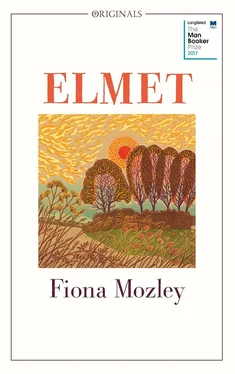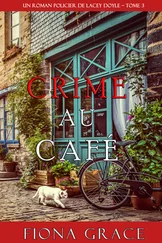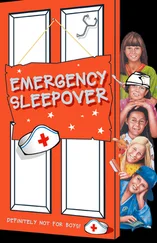There was a feud that had run for decades, Daddy told us, between the Joyces and the Quinn-McDonaghs. Every three years or so they would send their young men out against each other in one-on-one bare-knuckle matches that were moderated by older men from neutral families. In cases like these the families themselves could not be present in case a brawl broke out between one clan and the other, old and young, men and women, and a whole portion of the travelling community was wiped out or arrested by the police and packed into vans and taken off to jail.
There was much to gain. These feud fights were not divorced from high stakes. The Joyces and Quinn-McDonaghs competed on how much cash they were willing to front. Sometimes as much as £50,000 each and the winner would take it all back to their caravan and treat the whole clan to an evening of whisky. Daddy said they wanted the fights. He said that after all this time the quarrel between the families meant little but each time one of the top men was short of money they would like as not start something up in the hope of gaining. It was more than pride; it was prize money.
This is what it was about for Daddy too, of course. We were not travellers so the feuds meant nothing to us. He fought at bouts that were arranged for money, where travellers or gypsies, rough farmers, criminals from the towns, owners of underground nightclubs and bars, drug dealers and thugs, or just men who saw their worth resting in their fists, met together and brought their money in the hope of winning more. Daddy arrived in a pair of blue jeans and a buttoned-up bomber jacket. He was given the time and place over the phone by a fixer or else just picked up by the travellers or by someone else. He waited quietly among his admirers. Daddy rarely talked more than he could help. He allowed very few men to meet his eyes. He turned away and paced calmly by himself while the men made their bargains and agreed their rates.
Daddy started the fight. He peeled off his jacket and jumper and stood in a white vest, revealing not the lean, stratiform muscles of an athlete but the kind of biceps that could be soft tight pillows if they were not made from long chains of snap-rubber. There was little hair on his arms. Surprisingly little. Black hair reached up his back and stomach to his chest and the back of his neck and head to meet a full black beard and head of hair, but his arms were bare. He stepped towards the appointed ground and the other man fell into place. Daddy saw his opponent for the first time. He was unmoved. He did not hate this man. He walked towards him and boxed him and when it was over he heard measured applause and was taken over to a blue Peugeot behind the crowds and given from its boot a zipped duffle bag full of dirty cash.
Those men must have been satisfied by something they saw there. The gambling obscured the real pleasure. The cash had to be present, of course, to make it safe. To make it about business. To underpin the spectacle with something serious. To justify the performance. But if it was money they wanted there were other ways to get it and if it were a matter of business the fight would not have been with bare hands.
Yes, it was during this summer in the woods, before the new house was built, that Daddy told us these stories, confided in us, and Cathy and I listened like we were receiving precious heirlooms. Daddy’s eyes became wide when he spoke to us, flecked, light blue, like worn denim, and he would lean in and open them generously then pinch them closed ever so slightly when he reached for a memory that was not quite clear. He sat forward in his chair with his long, thick legs apart, his elbows resting above his knees and his cavernous chest bearing broad, weighted shoulders.
I supposed that was how we made our money. From Daddy’s fighting. But for months there would be no fights and Daddy would find other work. He mentioned this other work but there were fewer stories. The men he worked with on these jobs were sometimes travellers but more often they were from further away.
On one Thursday evening in our first September Cathy and I were sitting alone in our kitchen in the new home. It had been a windy afternoon and it was a windier evening. The foundations and joints of the house were tested for the first time and they creaked and groaned as they do in any building that has not yet set. The house was finding its position in the landscape, sitting down and relaxing into its trough, and we felt it sigh and moan for hours.
Daddy had been away since the afternoon before and we had not expected to see him again for days. We were surprised, then, when he came home that next morning just after dawn, while we were playing cards and drinking mugs of tea. We heard his car arrive outside, rolling then braking gently atop the leaf litter, and his familiar footsteps coming to us. I ran out to the hall to open the door for him, unbolting it at the top and bottom then turning the key. I pulled it in and stood aside to let my Daddy past. He walked to the kitchen table, alert but exhausted, and sat on one of the three wooden chairs that bent under his weight.
He pressed Cathy for a cup of tea and she got up and shifted the kettle back onto the stove. Daddy stretched his legs under the table then pulled them back in towards himself to make a start on tightly knotted bootlaces. Cathy rolled him a cigarette while waiting on the water and when she handed it to him I saw that her face was suddenly awake, like his, like he had brought something bright and alive home for us to devour. This night, as at other times, I saw that she was truly his daughter.
He had been called up by a lad, he said. Somebody he knew from here and there. Peter had lived in the village since he was nine or ten when his mother had moved from Doncaster to work at the chip shop, taking the customers’ money then wrapping up the fish that the men fried. Peter had asked, through a friend of course, if Daddy could go over there to see him. He had heard that we had moved in nearby. That is to say, he had heard of Daddy’s reputation. Amongst certain types in the Yorkshire ridings and in Lincolnshire and in the counties around there were few who had not.
Peter had worked as a labourer on and off for the building companies in the area. Most had pulled back their work now and if it was not entirely dead then it was at least tethered. For two or more years Peter did not have much, Daddy told us. He had come through though. He had started to work for himself, privately, hiring himself out to anyone around who still had money. He built extensions, saw to bits of plumbing and knocked through sash windows. That sort of thing. Work that Daddy could have done but chose not to. Peter had been good at it, Daddy said. He had known how to manage his time and his money, which is half of anything. People spoke to their friends about him and he got more than enough work. For a time he did more than just live. There was pride, or something like it, and that was an almost-forgotten feeling in these parts. There became such things as futures and pasts and Peter began to take his place between them.
Two winters ago, he had taken a job at one of the big farms. He was building an extension to one of the outhouses when a fat dairy cow with two calves in her belly pulled her teats from the mechanical milking vice, kicked herself free from her trusses and galloped out the barn door. She knocked the ladder from beneath Peter’s feet and he fell down beneath her hooves. She felt her grounding change as a hind leg found the soft lower back of the fallen man and she struck out against the outhouse wall then against Peter’s head and neck. He was knocked out and lay bleeding on the filthy, wet cement.
Farms can be lonely places. They can be lonely places to have skin torn and bones crushed. They can be lonely places to die. But not for Peter that day. One of the permanent hands found him and his broken body and wrapped him in his coat and took him to Doncaster hospital in the back of a horse box.
Читать дальше


![David Jagusson - Fiona wird durchgefickt [BDSM]](/books/491106/david-jagusson-fiona-wird-durchgefickt-bdsm-thumb.webp)









